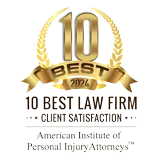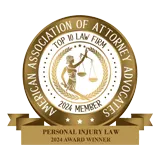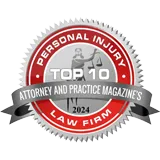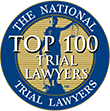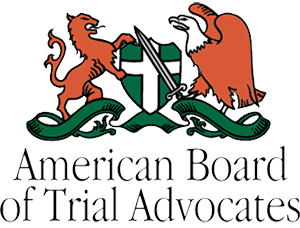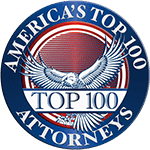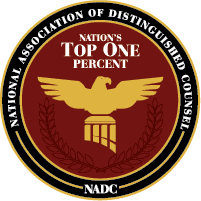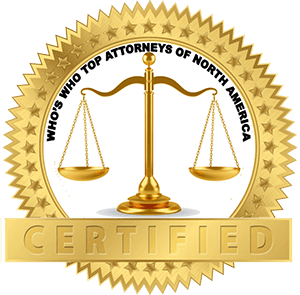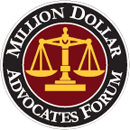Janesville Premises Liability Lawyers
Premises liability cases involve injuries that happen on another person’s property due to unsafe conditions or negligent maintenance. Common examples include slip and fall accidents on wet floors or uneven sidewalks, trip and fall incidents due to broken stairs or poor lighting, inadequate security leading to criminal attacks, dog bites, and injuries from falling objects in retail environments. These accidents can result in serious injuries, high medical bills, lost wages, and ongoing pain and suffering.
At Nowlan Personal Injury Law, we hold property owners accountable when their negligence causes harm. We offer free consultations and work on a contingency fee basis, meaning you pay no attorney fees unless we recover fair compensation for your injuries.
Why Hire Nowlan Personal Injury Law?
When you’ve been seriously injured in a premises liability accident, you need a lawyer who will fight hard for you. At Nowlan Personal Injury Law, we combine proven results, extensive experience, and personalized service to get the best results for clients throughout Southern Wisconsin.
- Over $75 Million Recovered for Injury Clients: Our experienced attorneys have won millions of dollars in settlements and jury awards for our clients. Our track record includes seven-figure premises liability settlements and verdicts, demonstrating our ability to handle a wide range of these cases.
- Top-Tier Legal Representation: Our lawyers have been recognized for their skill and accomplishments. Steven T. Caya has been named a Wisconsin Super Lawyer in Personal Injury every year since 2009 and is the only attorney in Rock County history admitted to membership in the Wisconsin Chapter of the American Board of Trial Advocates. Evan Tenebruso spent over a decade representing insurance companies before applying his legal acumen to personal injury cases.
- Decades of Combined Experience: The Nowlan Personal Injury Law team has over 50 years of combined experience. Attorneys Steve Caya and Evan Tenebruso both began their careers working for insurance companies, so we know how insurers evaluate and defend against premises liability claims.
- Direct Access to Your Attorney: When you work with Nowlan Personal Injury Law, you receive direct access to your attorney. This approach ensures that nothing falls through the cracks and that your case receives the attention it deserves.
- Convenient Office Locations: We have offices in Janesville, Beloit, and Sun Prairie. If a serious injury makes travel difficult, we’re happy to meet with you at a location that’s convenient for you.
What Is Premises Liability?
Premises liability refers to the legal responsibility that property owners and occupiers have to maintain safe conditions for people who lawfully enter their property. Building owners in particular have a legal duty to keep the property safe and to protect visitors from unreasonable risks of injury.
Wisconsin premises liability law recognizes three categories of visitors, each owed different levels of care. This legal doctrine helps determine liability for injuries in these cases:
- Invitees: These people are invited onto the site for an express or implied purpose, such as customers in stores or social guests in homes. A business invitee is owed the highest duty of care by property owners.
- Licensees: Unlike invitees, whose presence is mainly for the benefit of the owner or occupier, licensees enter a property for their own purpose, such as door-to-door salespeople or those with permission to hunt on private land. Property owners must use ordinary care to avoid creating new hazards that could harm licensees.
- Trespassers: These individuals aren’t authorized to be on site and are generally not owed a duty of care. That said, home and business owners can’t set traps or deliberately harm trespassers.
The duty of care extends beyond maintaining safe conditions. Property owners must also take reasonable steps to protect visitors from foreseeable criminal acts by third parties, particularly in areas where criminal activity is known to occur or where adequate security measures would be expected, such as concert venues or nightclubs.
Common Types of Premises Liability Claims
Premises liability encompasses a wide range of accidents and injuries. Common incidents include:
- Slip and Fall Accidents: These accidents, which are the most common type of premises liability claim, happen when visitors slip and injure themselves on slippery floors, icy sidewalks, or other slick surfaces. Retail stores, restaurants, and office buildings are common locations for these accidents, particularly during Wisconsin’s winter months, when ice and snow create hazards.
- Trip and Fall Hazards: These incidents involve obstacles or hazards that cause visitors to stumble and fall. Common examples include broken sidewalks, defective stairways, uneven flooring, loose carpeting, electrical cords across walkways, and poorly maintained apartment stairs. Failing to maintain safe walkways is a common form of negligence in premises liability cases.
- Inadequate Security Incidents: When property owners fail to provide reasonable security measures, people can and do get hurt. This includes assaults, robberies, or other criminal acts that occur due to inadequate lighting, broken locks, lack of security guards, or failure to maintain secure access controls.
- Dog Bites and Animal Attacks: These cases hold property owners liable for injuries caused by their animals, regardless of the animal’s previous behavior in many cases. Wisconsin law makes owners strictly liable for animal bites and other damages caused by their pets on their property.
- Swimming Pool Injuries: Drowning accidents, slip and fall incidents around pool areas, and injuries from defective pool equipment can all result in premises liability claims. Failing to provide adequate safety measures around pools is another form of negligence that can lead to serious injuries or death.
- Falling Objects in Retail or Warehouse Settings: When improperly stored merchandise, construction materials, or building components fall and strike visitors, serious injuries can result. Property owners must ensure that such items are securely stored and that overhead hazards are properly maintained and inspected.
Who Can Be Held Responsible?
Multiple parties may share responsibility for a slip and fall, trip and fall, and other incidents that cause harm:
- Commercial Property Owners: These parties bear primary responsibility for maintaining safe conditions in commercial properties like retail stores, office buildings, restaurants, hotels, and other business establishments. If they don’t take reasonable care and someone is hurt, they can face a premises liability claim.
- Residential Owners and Rental Property Landlords: These private property owners can be held liable for accidents that occur in common areas of apartment buildings, such as lobbies, stairwells, parking areas, and laundry facilities. Landlords of residential properties have a warranty of habitability that requires them to maintain safe living conditions for their tenants.
- Government Entities: These entities, which oversee public properties like parks, government buildings, and recreational facilities, include municipalities, counties, and state agencies. However, claims against government entities are subject to notice requirements and damage caps.
- Tenants or Third-Party Contractors: These parties may share responsibility for an accident, depending on their level of control over the area at the time. For example, a restaurant tenant in a shopping center might be liable for slip and fall accidents within their leased space, while a snow removal contractor could be responsible for injuries caused by inadequate ice and snow removal. A maintenance company hired to service the property can also be held liable for accidents caused by their negligent work.
What You Need to Prove in a Premises Liability Case
To pursue a premises liability claim in Wisconsin, you need to establish four key legal elements.
- Duty Owed by the Property Owner: This must be established based on your status as an invitee, licensee, or trespasser at the time of the accident. The level of duty varies depending on this classification, with invitees receiving the highest level of protection under Wisconsin law.
- Breach of That Duty Through Negligence: This requires proving that the property owner failed to meet their legal obligations. Evidence of poor maintenance, inspection failures, code violations, and other hazardous conditions can help establish this breach.
- Causation Linking the Breach to Your Injury: This involves demonstrating that the property owner’s negligence directly caused or contributed to your accident and resulting injuries. This requires showing both factual causation (the accident wouldn’t have occurred if negligence wasn’t involved) and legal causation (the injury was a foreseeable consequence of the unsafe condition).
- Damages Suffered: Damages must be documented through medical records, employment records, and other evidence showing the impact of your injuries. This includes medical expenses, ongoing treatment costs, lost wages, reduced earning capacity, pain and suffering, and other losses directly related to the accident.
Types of Compensation Available
Premises liability victims in Wisconsin may be entitled to recover various types of financial damages, depending on the severity of their injuries and the impact on their lives.
- Medical Costs: This includes all expenses related to treating your injuries, from emergency room visits and hospital stays to ongoing physical therapy, prescription medications, and future medical care. An experienced premises liability lawyer can help ensure that all your medical bills are properly documented and included in your claim.
- Lost Income: This category covers wages you’ve missed when you can’t work after the accident, as well as reduced earning capacity if your injuries prevent you from returning to your previous employment. Victims may also be entitled to additional compensation for loss of future earning potential. In cases of gross negligence, courts may also award punitive damages to punish the property owner’s misconduct.
- Pain and Suffering: Pain and suffering represents the physical discomfort, emotional distress, and reduced quality of life resulting from your injuries. Wisconsin law allows recovery for both past and future pain and suffering, recognizing that some injuries cause ongoing discomfort and limitations.
- Loss of Enjoyment of Life: This compensates for the inability to participate in hobbies, sports, social activities, and other pursuits that previously brought joy and fulfillment to your life.
- Wrongful Death (If Applicable): Surviving family members may file a wrongful death claim to recover fair compensation for funeral expenses, lost financial support, and loss of companionship that the injured party provided.
How Long Do You Have to File a Premises Liability Claim?
Personal injury cases in Wisconsin have a three-year statute of limitations under Wisconsin Statutes Section 893.54. This means you generally have three years from the date of your injury to file a premises liability lawsuit in court. However, this deadline isn’t absolute, and several factors can affect when the statute of limitations begins to run.
For example:
- The discovery rule may apply in cases where the full extent of your injuries or their connection to the property owner’s negligence isn’t immediately apparent. The date that the time begins to run can vary depending on when you knew or reasonably should have known about your injury and its cause.
- Shorter timelines exist for claims involving government property. Before you’re allowed to sue, you must give the government written notice of your claim. If you’re suing a Wisconsin political subdivision or its officers, employees, or agents for injuries on public property, your recovery is limited to $50,000.
Wisconsin recognizes a different statute of limitations for minors and incompetents. If, at the time of the accident, the injured person is under the age of 18 or “mentally ill”, a lawsuit may be filed within two years once the person turns 18 or they regain consciousness, though this extension can’t exceed five years total. A wrongful death claim also has its own timeline, which should be discussed with an experienced premises liability attorney.
What To Do After a Premises Liability Accident
If you’ve been injured in a slip and fall, trip and fall, or any other preventable accident on private premises or public property, take the following steps right away.
- Seek Medical Care Immediately: Get medical attention even if your injuries seem minor at first. Some injuries, particularly head trauma and soft tissue injuries, may not manifest symptoms immediately but can worsen over time. Medical documentation creates a record of your injuries and their connection to the accident. Follow all recommended treatments and keep detailed records of all medical bills and appointments.
- Report the Incident to the Property Owner or Manager: Many businesses have procedures for documenting accidents, and creating an official incident report establishes a record of what occurred. Be factual in your description but avoid accepting blame or making statements about fault, as these can be used against you later.
- Take Photos and Gather Witness Names: Photograph the dangerous condition that caused your accident as well as your injuries, the surrounding area, and any warning signs or lack thereof. Collect contact information from anyone who witnessed the accident, as their testimony can help you prove your case.
- Avoid Speaking to Insurance Adjusters: Insurance companies often contact accident victims quickly, seeking recorded statements or attempting to offer quick settlements. These early offers rarely account for the full extent of your injuries or future medical needs and may prevent you from pursuing a fair premises liability settlement. Politely decline to give recorded statements and refer insurance representatives to your attorney.
- Contact Nowlan Personal Injury for a Case Evaluation: Do this as soon as possible after your accident. An experienced premises liability lawyer can review your case, advise you of your rights, and begin the work of preserving evidence and building your personal injury claim.
Contact Our Wisconsin Premises Liability Lawyers Today
When you’ve been injured on someone else’s property, you need a skilled attorney with a proven track record of success. At Nowlan Personal Injury Law, we invite you to schedule a free consultation to discuss your premises liability case. We’ll evaluate the merits of your claim, explain your legal options, and answer any questions you may have. To speak with our Wisconsin premises liability lawyers, call (608) 755-8100 today.

